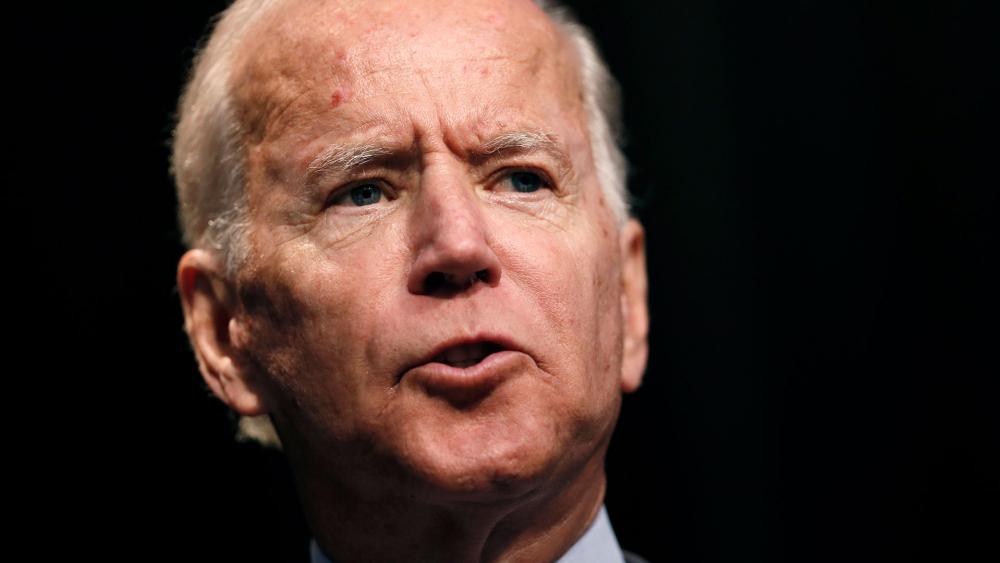
(Reuters) – In an executive order on Friday, U.S. President Joe Biden aims to remove barriers to competition in such industries as healthcare, financial services and agriculture while boosting wages and lowering prices, the White House said.
The order:
* Encourages the leading antitrust agencies to focus enforcement efforts on problems in key markets and coordinates other agencies’ ongoing response to corporate consolidation.
* Calls on the leading antitrust agencies, the Department of Justice (DOJ) and Federal Trade Commission (FTC), to enforce the antitrust laws vigorously and recognizes that the law allows them to challenge bad mergers that past administrations did not previously challenge.
* Announces a policy that enforcement should focus in particular on labor markets, agricultural markets, healthcare markets (which includes prescription drugs, hospital consolidation and insurance), and the tech sector.
* Establishes a White House Competition Council, led by the Director of the National Economic Council, to monitor progress on finalizing the initiatives in the order and to coordinate the federal government’s response to the rising power of large corporations in the economy.
LABOR MARKETS
* Encourages the FTC to ban or limit non-compete agreements.
* Encourages the FTC to ban unnecessary occupational licensing restrictions that impede economic mobility.
* Encourages the FTC and DOJ to strengthen antitrust guidance to prevent employers from collaborating to suppress wages or reduce benefits by sharing wage and benefit information with one another.
HEALTHCARE
* Directs the Food and Drug Administration to work with states and tribes to safely import prescription drugs from Canada, pursuant to the Medicare Modernization Act of 2003.
* Directs the Health and Human Services Administration (HHS) to increase support for generic and biosimilar drugs, which provide low-cost options for patients.
* Directs HHS to issue a comprehensive plan within 45 days to combat high prescription drug prices and price gouging.
* Encourages the FTC to ban “pay for delay” and similar agreements by rule.
Hearing Aids
* Directs HHS to consider issuing proposed rules within 120 days for allowing hearing aids to be sold over the counter.
Hospitals
* Underscores that hospital mergers can be harmful to patients and encourages the Justice Department and FTC to review and revise their merger guidelines to ensure patients are not harmed by such mergers.
* Directs HHS to support existing hospital price transparency rules and to finish implementing bipartisan federal legislation to address surprise hospital billing.
Health Insurance
* Directs HHS to standardize plan options in the National Health Insurance Marketplace so people can comparison shop more easily.
TRANSPORTATION
Airlines
* Directs the Department of Transportation (DOT) to consider issuing clear rules requiring the refund of fees when baggage is delayed or when service isn’t actually provided, such as when a plane’s WiFi or in-flight entertainment system is broken.
* Directs the DOT to consider issuing rules that require baggage, change and cancellation fees to be clearly disclosed to the customer.
Rail
* Encourages the Surface Transportation Board to require railroad track owners to provide rights of way to passenger rail and to strengthen their obligations to treat other freight companies fairly.
Shipping
* Encourages the Federal Maritime Commission to ensure vigorous enforcement against shippers charging American exporters exorbitant charges.
AGRICULTURE
* Directs U.S. Department of Agriculture (USDA) to consider issuing new rules under the Packers and Stockyards Act making it easier for farmers to bring and win claims, stopping chicken processors from exploiting and underpaying chicken farmers, and adopting anti-retaliation protections for farmers who speak out about bad practices.
* Directs USDA to consider issuing new rules defining when meat can bear “Product of USA” labels, so that consumers have accurate, transparent labels that enable them to choose products made in the United States.
* Directs USDA to develop a plan to increase opportunities for farmers to access markets and receive a fair return, including supporting alternative food distribution systems like farmers’ markets and developing standards and labels so that consumers can choose to buy products that treat farmers fairly.
* Encourages the FTC to limit powerful equipment manufacturers from restricting others’ ability to use independent repair shops or do DIY repairs, such as when tractor companies block farmers from repairing their own tractors.
INTERNET SERVICE
* Encourages the Federal Communications Commission (FCC) to prevent ISPs from making deals with landlords that limit tenants’ choices.
* Encourages the FCC to revive the “Broadband Nutrition Label” and require providers to report prices and subscription rates to the FCC.
* Encourages the FCC to limit excessive early termination fees.
* Encourages the FCC to restore Net Neutrality rules undone by the prior administration.
TECHNOLOGY
* Announces an administration policy of greater scrutiny of mergers, especially by dominant internet platforms, with particular attention to the acquisition of nascent competitors, serial mergers, the accumulation of data, competition by “free” products, and the effect on user privacy.
* Encourages the FTC to establish rules on surveillance and the accumulation of data.
* Encourages the FTC to establish rules barring unfair methods of competition on internet marketplaces.
* Encourages the FTC to issue rules against anticompetitive restrictions on using independent repair shops or doing DIY repairs of one’s own devices and equipment.
BANKING AND CONSUMER FINANCE
* Encourages DOJ and the agencies responsible for banking (the Federal Reserve, the Federal Deposit Insurance Corporation, and the Office of the Comptroller of the Currency) to update guidelines on banking mergers to provide more robust scrutiny of mergers.
* Encourages the Consumer Financial Protection Bureau (CFPB) to issue rules allowing customers to download their banking data and take it with them.
(Editing by Howard Goller)












